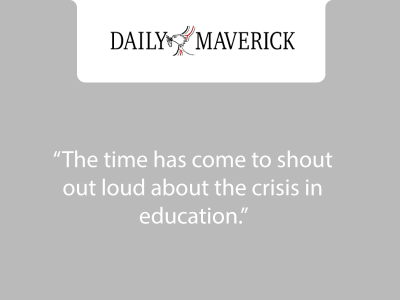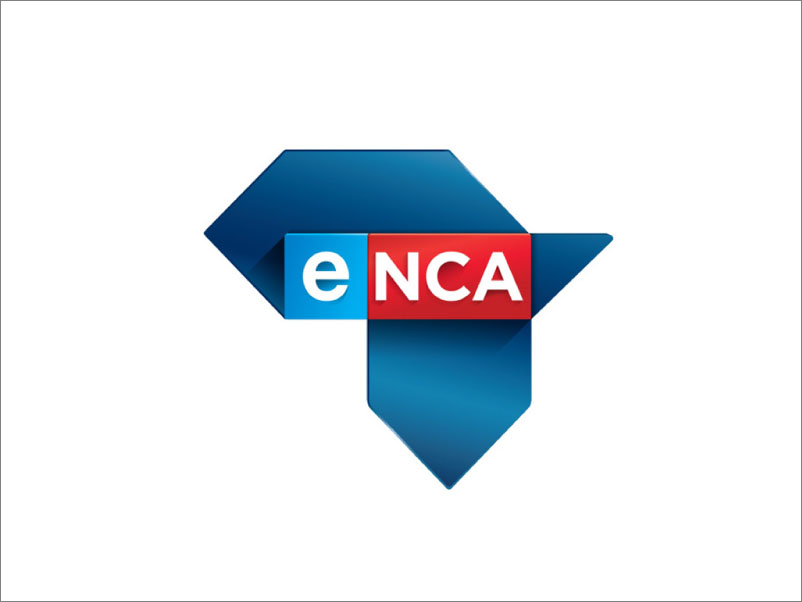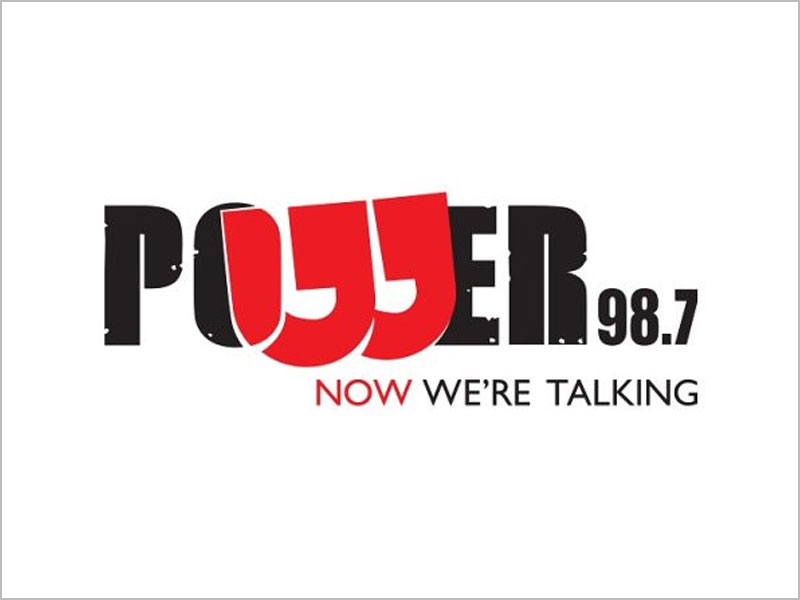 The system is failing our poorest learners. Nearly 30 years since we became a democracy and the majority of SA’s learners are not learning to read, write or add. Instead of a ‘silent revolution’, our schools are in a silent crisis.
The system is failing our poorest learners. Nearly 30 years since we became a democracy and the majority of SA’s learners are not learning to read, write or add. Instead of a ‘silent revolution’, our schools are in a silent crisis.
In November 2012, it was revealed that, of all 65 participating countries, Peru had come last in the Programme for International Student Assessment (Pisa) — an international test administered by the Organisation for Economic Co-operation and Development. Instead of downplaying the result, Peru’s new minister of education, Jaime Saavedra, decided to own the problem. “We’re not in trouble. We’re in deep trouble,” he said.
Saavedra immediately set about galvanising the education sector into action: “We can’t beat Brazil at soccer, but we can beat them at maths,” was his rallying cry.
Peru’s systemwide reform programme included the introduction of teacher and principal entrance exams and promotion evaluations, school bonuses based on performance, boosting the role of principals in hiring processes for teachers, and the increased generation and use of comprehensive performance data.
The reforms have been remarkably successful, with increases of 8% in reading and science and 6% in maths for Grade 3 learners in Pisa between 2009 and 2015. By 2018, Peru had achieved the quickest movement up the Pisa tables among Latin American countries, with 12 countries now below Peru in the rankings.
The Peru story shows what can happen when an education leader committed to reform diagnoses the problem correctly, designs and implements effective reform measures and with the support of the president and the broader society.
South Africa has the same desperate need for reform as Peru.
Researchers calculate in 2023 that it is likely that more than 80% of our Grade 4 learners cannot read for meaning in any language. In 2019, only 37% of Grade 5 learners had some basic mathematical knowledge. In 2021, more than half of Grade 1 learners did not know all the letters of the alphabet after a year of schooling.
South Africa performs very badly in international tests, compared to other countries, many of them poorer than us. In the 2019 Trends in Mathematics and Science Study, South Africa’s Grade 9 learners — on a maths test designed for Grade 8s — placed us stone last out of 39 participating countries. Similarly, in the 2016 Progress in International Reading Literacy Study, South Africa had the lowest average reading literacy score out of 50 participating countries.
Instead of “owning” the problem, President Cyril Ramaphosa speaks glowingly of a “silent revolution” under way in education. Minister of Basic Education Angie Motshekga proudly talks of “a system on the rise”. But the truth is that the system is failing our poorest learners. Nearly 30 years since we became a democracy and the majority of SA’s learners are not learning to read, write or add. Instead of a “silent revolution”, our schools are in a silent crisis.
The time has come to shout out loud about the crisis in education.
A package of reforms
The Centre for Development and Enterprise (CDE) has published a series of research reports that lay bare the facts of SA’s failure to deliver quality education in our schools and propose an approach and package of reforms to fix it.
A significant determinant of poor education outcomes in South Africa is the quality and quantity of teaching. According to education expert Professor Nic Spaull, four out of five teachers lack the content knowledge and pedagogical skills to teach their subjects. Just 41% of Grade 6 maths teachers are proficient in teaching maths, compared to 87% in Zimbabwe and 95% in Kenya. According to Motshekga, South Africa’s teacher absenteeism rate is the highest of all the SADC countries — but what has she done about that?
A central thrust of reform has to be to transform our mainly inefficient and corrupt education bureaucracy, which fails to give teachers the support they need and does not hold them accountable for poor performance.
This major change will only be possible if we confront the reality that the South African Democratic Teachers’ Union (Sadtu), has effectively captured the education system by infiltrating the bureaucracy at every level. The 2016 Ministerial Task Team appointed to investigate the so-called Jobs for Cash scandal involving the illegal payment for principals and teaching posts reached a shocking conclusion: “Sadtu is in de facto charge of the management, administration and priorities of education” in “six and possibly more of the nine provinces”.
To be effective, education reform in South Africa needs to be system-wide, with the aim of improving learning and teaching as its core objective. CDE recommendations include four critical priorities to improve education outcomes:
• Tackling corruption in the education system (prosecutions, protection for whistle-blowers, and so on) and eliminating State Capture through the prohibition of cadre deployment and introducing measures that weaken Sadtu’s stranglehold on education departments.
• Raising accountability levels by bringing back the Annual National Assessment (ANA) tests for grades 1 to 9, reinvigorating the National Education Evaluation and Development Unit, and giving principals more power over the appointment and management of teachers in their schools.
• Improving teacher performance by introducing higher standards of teacher training, strengthening the support that existing teachers receive and recruiting skilled foreign teachers in priority areas such as maths and science.
• Installing fresh leadership in public education: South Africa needs a new minister of basic education and a top team in the national department to drive and achieve systemwide reform against firm targets, budgets and deadlines. Equally important, the MMCs and heads of department in charge of provincial education departments need to be determined, capable reform leaders. The President’s full support is required for the tough political decisions essential to improve performance.
Systemwide reform can only succeed if all stakeholders push for it. Civil society organisations have launched important campaigns, but they tend to focus heavily on infrastructure and avoid the tough issues around weak teaching and union dominance. Too often, business avoids tackling the root causes of dysfunction and prefers to invest in projects that don’t always make a real and lasting impact. For political parties, it is easier to pick up on whatever issue is in the media that particular week, rather than thinking too hard about what it will take to fundamentally reform the system.
Reformers should take encouragement from the several Latin American countries that have confronted similar challenges and were able to overcome them. What is required is strong demand from below for better schooling, a louder voice for groups who have a powerful stake in better-performing schools (especially parents and business) and political leaders who are ready to heed those voices and commit themselves strongly and openly to a reform process that does not avoid the biggest, most important issues.
In Mexico, a public outcry was unleashed after a documentary called De Panzazo (Barely Getting By) was released by a business-backed political advocacy organisation in response to very low Pisa scores in 2006. The documentary highlighted union corruption and teacher indifference, putting unions on the back foot against an outraged citizenry.
Here in South Africa, we need to be outraged too. Reform of the basic education system must be recognised for the urgent national priority it is. To move South Africa in that direction, a concerted effort must be made to make education reform one of the key national priorities in the lead-up to the 2024 elections. DM
Bernstein is head of the Centre for Development and Enterprise. This article is based on ‘The Silent Crisis,’ a series of five CDE research reports on South Africa’s failing education system.
Article published by the Daily Maverick




